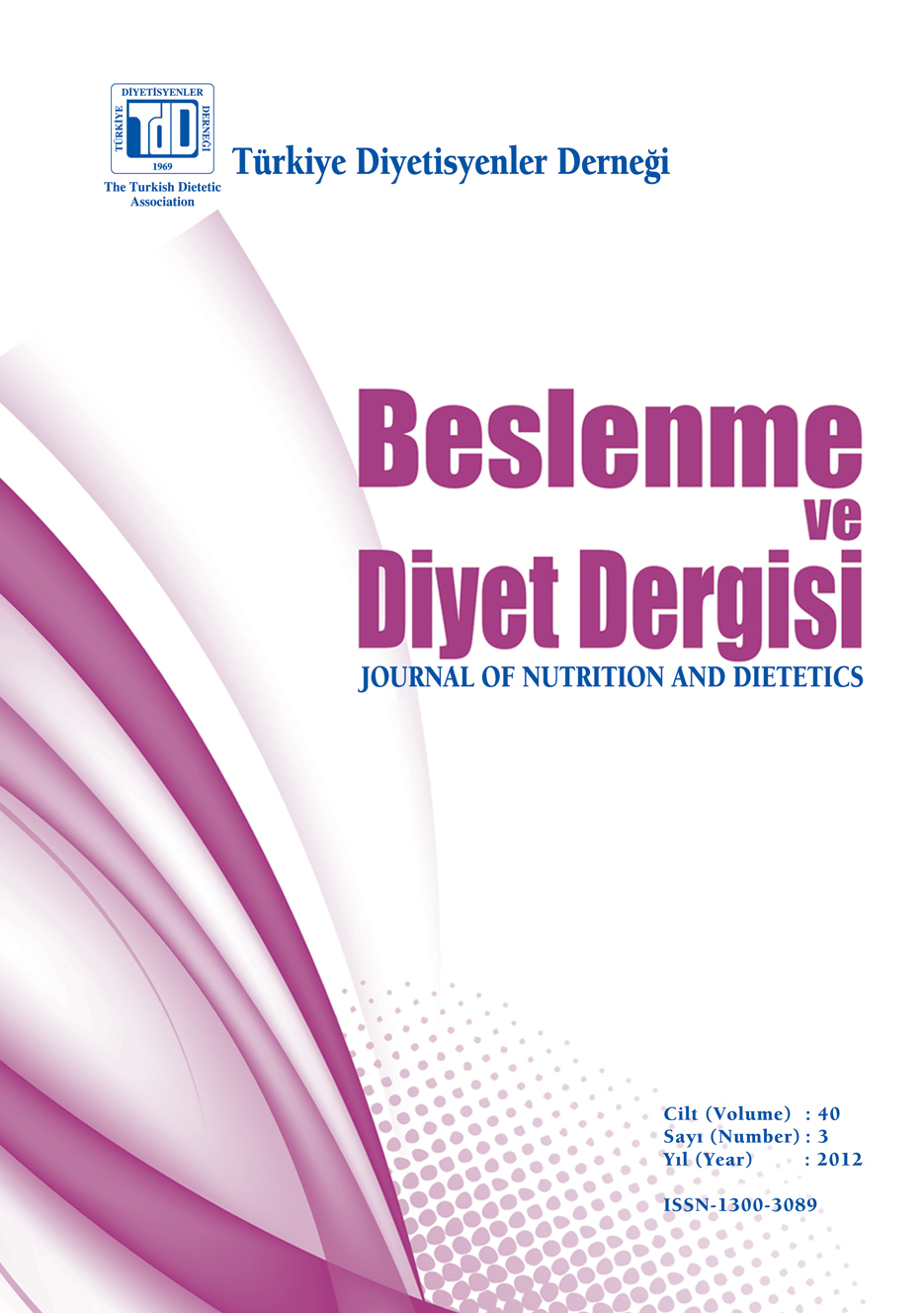Evaluation of the Effect of Medical Nutritional Therapy in Peritoneal Dialysis Patients with Metabolic Syndrome
Keywords:
peritoneal dialysis, metabolic syndrome, diet therapy, bioelectrical impedance analyzerAbstract
Aim: This study was conducted to determine and monitoring the effect of individual medical nutritional therapy on biochemical parameters (included in metabolic syndrome criteria), body composition and daily energy and nutrient intake in peritoneal dialysis patients with metabolic syndrome. Subject and methods: This study was carried out on 15 patients aged 25-64 years, defined metabolic syndrome according to modified criteria of the Adult Treatment Panel III (ATP III) for peritoneal dialysis patients, in Hospital of Gazi University, Peritoneal Dialysis Polyclinic. Bioelectrical Impedance Analyzer measurements and biochemical parameters were evaluated before and after diet therapy which contains 35 kcal/kg/day energy and 1.2 g/kg/day protein. Nutritional intakes were evaluated with 24-hour food records before the study and weekly 24-hour dietary records during 8 weeks. Results: Changes in energy, protein and vitamin intakes other than vitamin A after diet therapy were not significant (p>0.05). Also increase in polyunsaturated fatty acids and cholesterol consumption was found (p<0.05). Decrease in ratio of males who had high cholesterol and low albumin level and increase in ratio of females had high uric acid levels were found. It was determined that most of patients had low hemoglobin (male=90.0%, female=100.0%) and hematocrit (male=90.0%, female=100.0%) levels. When body composition was evaluated, significant decrease was found in extracellular water (L) of men (p<0.05). Increase in body fat percentage was not statistically significant. Conclusion: Poor dietary compliance and low nutritional intakes were determined. Further research examining effect of medical nutritional therapy with larger groups is needed.

